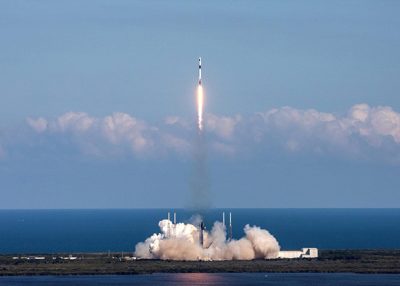
Encapsulate, a standout member of the UConn Technology Incubation Program (TIP), has been awarded a prestigious $3.63 million grant from NASA’s In-Space Production Applications (InSPA) Phase 1 program to develop a groundbreaking microgravity-based Metastasis-on-a-Chip platform. The project aims to revolutionize how scientists study cancer metastasis by leveraging the unique environment of space.
The NASA-funded initiative will allow Encapsulate to explore how cancer cells behave and spread in microgravity conditions aboard the International Space Station (ISS). The results could unlock new therapeutic pathways and speed up the development of personalized cancer treatments.
“This award is a huge milestone for Encapsulate and an exciting opportunity to push the frontiers of cancer research in a way that simply isn’t possible on Earth,” said Dr. Leila Daneshmandi, Co-Founder and Chief Operating Officer. “We’re proud to represent UConn TIP and Connecticut innovation on a national—and even interstellar—stage.”
Encapsulate’s technology integrates patient-derived cancer cells into a microfluidic chip to test the effectiveness of different therapies in real time. The InSPA funding will help expand this platform to simulate the process of metastasis in a low-gravity environment, providing new insights into how cancer spreads and responds to treatment.
The InSPA program is part of NASA’s broader effort to identify and support advanced technologies that can benefit both space exploration and life on Earth. Encapsulate was one of just four companies selected nationally in this competitive Phase 1 cycle.
As a UConn TIP company, Encapsulate exemplifies the caliber of startups nurtured through the university’s innovation ecosystem. Their success demonstrates how university-affiliated research, mentorship, and entrepreneurial support can translate into high-impact, real-world solutions.
Congratulations to the entire Encapsulate team on this transformative achievement!
